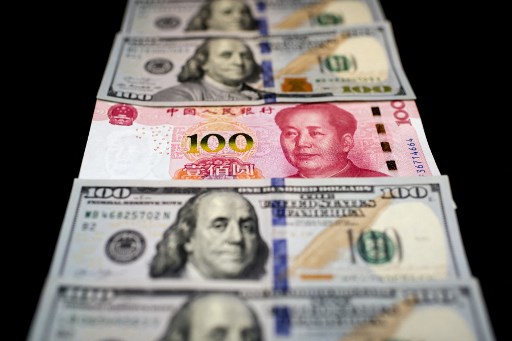
403
Sorry!!
Error! We're sorry, but the page you were looking for doesn't exist.
US tariff hike on Chinese imports escalates trade tensions
(MENAFN) The recent decision by the Biden administration to increase tariffs on Chinese imports has reignited concerns over escalating trade tensions between the two economic powerhouses, raising the specter of further retaliatory measures.
In a move aimed at addressing what it deemed "unfair trade practices," the US hiked tariffs on USD18 billion worth of imports from China, targeting critical industries such as steel, aluminum, semiconductors, solar cells, electric vehicles, and batteries. This decision, announced on May 14, elicited a strong response from Beijing, which condemned it as "typical bullying behavior" designed to stifle China's economic and technological activities.
Experts from both countries interpret the move as indicative of the prevailing sentiments and potential actions on both sides. In Washington, the tariff hike is seen as a signal of dissatisfaction with what is perceived as Beijing's "predatory" trade policies. According to Ed Hirs, an energy economist at the University of Houston, key concerns for the US include China's alleged theft of intellectual property, industrial espionage, support for fentanyl production targeting the US, and assertiveness in the South China Sea.
These grievances were echoed in the White House statement announcing the tariff increase, which accused China of flooding global markets with artificially low-priced exports. The statement also pointed to China's alleged forced technology transfers and intellectual property theft, attributing its control of up to 90 percent of global production for critical inputs to these practices. Such actions, the statement argued, pose unacceptable risks to US supply chains and economic security, particularly in key sectors such as technology, infrastructure, energy, and healthcare.
The escalation of trade tensions between the US and China underscores the deepening rift in their economic relationship, with implications for global trade and economic stability. As both sides engage in tit-for-tat measures, the path to resolving these disputes remains uncertain, raising concerns about the potential for further disruptions to global supply chains and trade flows.
In a move aimed at addressing what it deemed "unfair trade practices," the US hiked tariffs on USD18 billion worth of imports from China, targeting critical industries such as steel, aluminum, semiconductors, solar cells, electric vehicles, and batteries. This decision, announced on May 14, elicited a strong response from Beijing, which condemned it as "typical bullying behavior" designed to stifle China's economic and technological activities.
Experts from both countries interpret the move as indicative of the prevailing sentiments and potential actions on both sides. In Washington, the tariff hike is seen as a signal of dissatisfaction with what is perceived as Beijing's "predatory" trade policies. According to Ed Hirs, an energy economist at the University of Houston, key concerns for the US include China's alleged theft of intellectual property, industrial espionage, support for fentanyl production targeting the US, and assertiveness in the South China Sea.
These grievances were echoed in the White House statement announcing the tariff increase, which accused China of flooding global markets with artificially low-priced exports. The statement also pointed to China's alleged forced technology transfers and intellectual property theft, attributing its control of up to 90 percent of global production for critical inputs to these practices. Such actions, the statement argued, pose unacceptable risks to US supply chains and economic security, particularly in key sectors such as technology, infrastructure, energy, and healthcare.
The escalation of trade tensions between the US and China underscores the deepening rift in their economic relationship, with implications for global trade and economic stability. As both sides engage in tit-for-tat measures, the path to resolving these disputes remains uncertain, raising concerns about the potential for further disruptions to global supply chains and trade flows.

Legal Disclaimer:
MENAFN provides the
information “as is” without warranty of any kind. We do not accept
any responsibility or liability for the accuracy, content, images,
videos, licenses, completeness, legality, or reliability of the information
contained in this article. If you have any complaints or copyright
issues related to this article, kindly contact the provider above.


















Comments
No comment